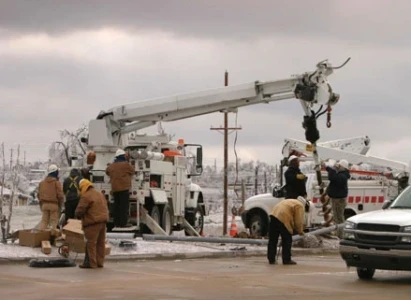US Nuclear Industry Needs Further Policy and Regulatory Advances: Insights from the NCEW Panel

The U.S. nuclear industry stands at a critical juncture, as it seeks to play a pivotal role in the country’s energy future. A recent panel discussion at the Nuclear Coalition for Energy Workforce (NCEW) underscored the pressing need for enhanced policy and regulatory frameworks to support this vital sector. Industry experts emphasized that without strategic advancements, the nuclear industry may struggle to meet growing energy demands while simultaneously addressing climate change.
Current Challenges Facing the Nuclear Sector
The U.S. nuclear industry faces a myriad of challenges that hinder its growth and potential contribution to a clean energy future. Among these challenges are aging infrastructure, competition from cheaper energy sources like natural gas and renewables, and complex regulatory processes that can delay the development of new projects.
One of the key issues highlighted during the NCEW panel was the need for a streamlined regulatory environment. Experts pointed out that the current approval processes for new nuclear projects can be lengthy and cumbersome, often taking years to navigate. This not only increases costs but also discourages investment in new technologies and innovations that could enhance the safety and efficiency of nuclear energy.
The Role of Policy in Promoting Nuclear Energy
To effectively harness the potential of nuclear energy, the U.S. must develop policies that create a supportive environment for both existing plants and new developments. Panelists discussed the importance of federal and state policies that prioritize nuclear power as a critical component of the nation’s energy mix.
Supportive policies could include financial incentives for nuclear plants that meet strict safety and environmental standards, as well as funding for research and development of advanced reactor technologies. These initiatives can help revitalize the industry and ensure that nuclear power remains a viable option in the transition to a low-carbon energy future.
The Need for Innovation
Innovation is vital for the future of the nuclear industry. The panel emphasized that while traditional nuclear plants have been instrumental in providing a steady and reliable energy supply, new technologies—such as small modular reactors (SMRs) and advanced reactors—hold the potential to revolutionize the sector.
These newer technologies are designed to be more flexible and can be deployed in various settings, making nuclear power accessible in regions that may not support traditional large-scale reactors. However, the development and deployment of these innovative solutions require regulatory frameworks that encourage experimentation and facilitate quicker approvals.
Building a Skilled Workforce
Another significant point raised during the discussion was the need to cultivate a skilled workforce to support the nuclear industry. As the sector evolves, it will require professionals with expertise in advanced technologies, regulatory compliance, and safety standards.
Panelists stressed the importance of educational programs and training initiatives that prepare the next generation of nuclear engineers, technicians, and safety personnel. By investing in workforce development, the nuclear industry can ensure that it has the talent necessary to meet future challenges and opportunities.
The Path Forward
For the U.S. nuclear industry to thrive, stakeholders must work collaboratively to promote policy and regulatory advancements. This requires engagement from various entities, including federal and state governments, industry leaders, and advocacy groups.
The NCEW panel underscored the importance of dialogue among these stakeholders to create a unified vision for the future of nuclear energy. By fostering an environment conducive to innovation and investment, the U.S. can capitalize on its existing nuclear capabilities while paving the way for next-generation technologies.
Conclusion
The U.S. nuclear industry is poised to play a crucial role in achieving energy independence and combating climate change. However, without significant policy and regulatory advancements, its potential remains constrained. The insights from the NCEW panel highlight the urgent need for a comprehensive approach that supports the industry through streamlined regulations, innovative technologies, and a skilled workforce.
As the nation navigates its energy transition, prioritizing nuclear power could be a key strategy in achieving a sustainable and resilient energy future. Engaging in constructive dialogue and fostering collaboration among all stakeholders will be essential to unlocking the full potential of the nuclear industry in the years to come.









